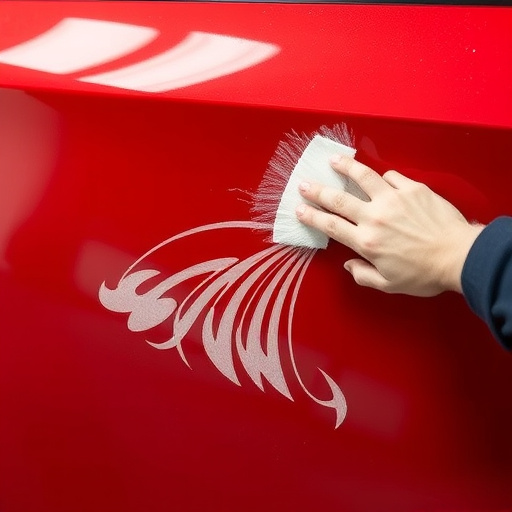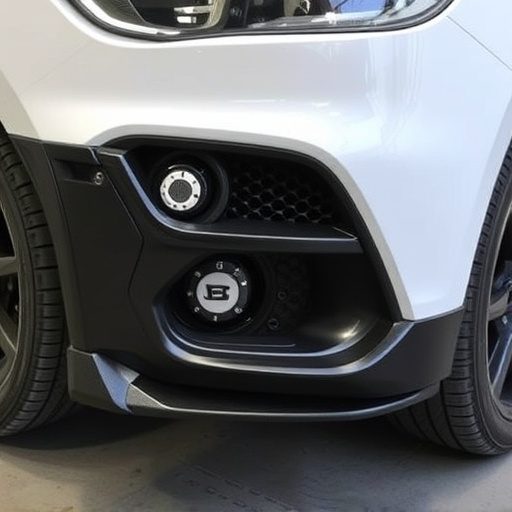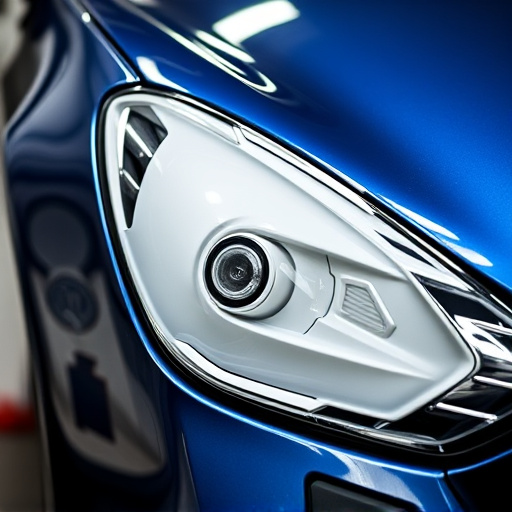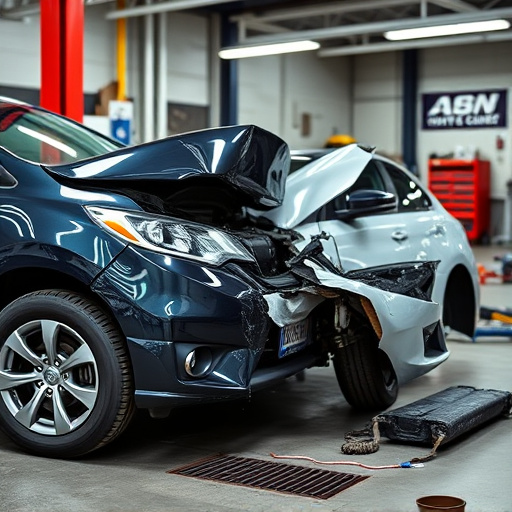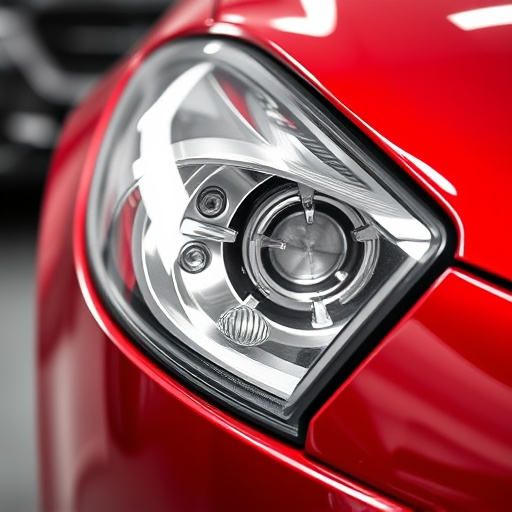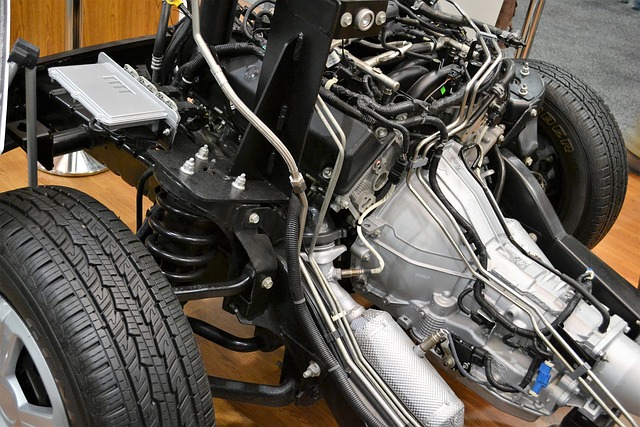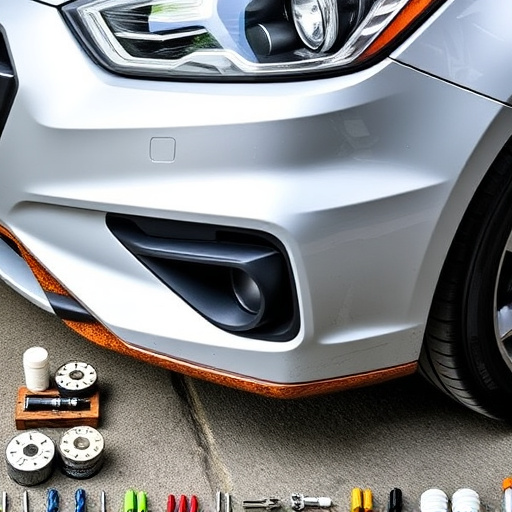Aluminum body components are transforming custom and performance cars, offering lightweight strength, corrosion resistance, and recyclability, appealing to eco-conscious drivers. Compared to carbon fiber components, aluminum improves vehicle dynamics, fuel efficiency, and collision repair simplicity while reducing maintenance needs over time. These advantages make aluminum a cost-effective solution for drivers seeking both performance upgrades and environmental responsibility.
Aluminum body components are transforming the custom and performance vehicle landscape. This lightweight metal offers unparalleled strength-to-weight ratios, making it a game-changer for speed enthusiasts and bespoke car creators. In this article, we explore aluminum’s growing role in automotive design, highlighting its advantages over traditional materials. We delve into specific performance upgrades made possible by aluminum body components, and compare them to the cutting-edge alternatives like carbon fiber parts, offering insights for both enthusiasts and industry professionals.
- Exploring Aluminum's Role in Automotive Design
- Advantages of Lightweight Carbon Fiber Components
- Performance Upgrades: Aluminum Body Applications
Exploring Aluminum's Role in Automotive Design

Aluminum has been a significant material in automotive design for decades, but its role is evolving to meet the demands of modern vehicles. In the realm of custom and performance cars, aluminum body components offer a lightweight alternative to traditional steel, providing both strength and maneuverability. This metal’s versatility allows for intricate designs and streamlined shapes that can enhance a vehicle’s aesthetics and overall performance.
The automotive industry’s shift towards sustainability has also driven the integration of aluminum. Its excellent corrosion resistance and recyclability make it an eco-friendly choice, especially when compared to carbon fiber components. While carbon fiber offers unparalleled strength-to-weight ratios, aluminum is more readily accessible and cost-effective for many auto body shops specializing in vehicle collision repair. This balance between performance, design freedom, and sustainability makes aluminum a top material of choice for those seeking to customize or enhance their vehicles without compromising on quality or environmental responsibility.
Advantages of Lightweight Carbon Fiber Components
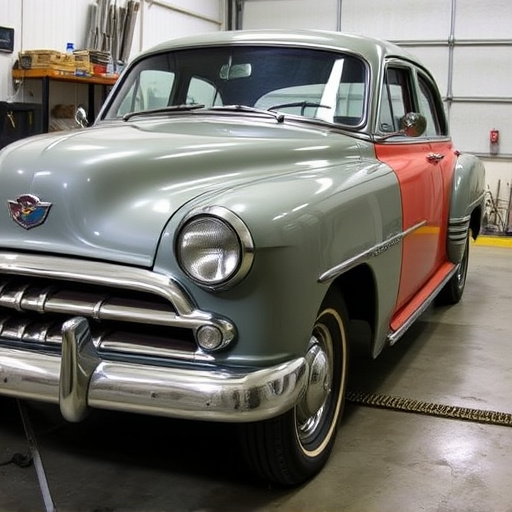
Carbon fiber components offer a significant advantage over traditional materials in the automotive industry, especially for custom and performance vehicles. One of the key benefits is their exceptional lightweight property, making them an ideal choice for vehicle manufacturers looking to enhance performance and fuel efficiency. By replacing heavier metal parts with carbon fiber alternatives, auto glass repair and automotive collision repair processes can become less complex and costly.
These components are known for their superior strength-to-weight ratio, ensuring enhanced structural integrity without adding substantial weight. This feature is crucial for vehicle restoration projects, where preserving the original aesthetics while improving performance is a top priority. Moreover, carbon fiber’s durability and resistance to corrosion make it a long-lasting solution, contributing to reduced maintenance needs over time.
Performance Upgrades: Aluminum Body Applications

In the realm of custom and performance vehicles, aluminum body components have emerged as a game-changer, offering significant advantages over traditional materials like steel. One area where their benefits shine is in performance upgrades. Aluminum’s lightweight nature provides an ideal platform for enhancing vehicle dynamics, which is crucial for achieving better acceleration, handling, and overall driving experience. By replacing heavier carbon fiber components with aluminum alternatives, auto body services can facilitate more efficient weight distribution, enabling smoother transitions during cornering and improved fuel economy.
Moreover, aluminum body applications in performance vehicles extend beyond mere structural advantages. Its excellent corrosion resistance ensures that these upgrades maintain their integrity over time, even under harsh conditions. This durability is particularly beneficial for those seeking long-lasting vehicle modifications without the need for frequent repairs or visits to a collision center. As a result, aluminum-based components not only contribute to enhanced performance but also offer cost-effective solutions for custom vehicle owners looking to elevate their driving experience.
Aluminum body components offer a compelling alternative to traditional materials, particularly for custom and performance vehicles. By leveraging aluminum’s inherent lightweight properties and advanced manufacturing techniques, automotive designers can create structures that are both strong and efficient. While carbon fiber components hold their own as the go-to material for extreme applications due to their exceptional strength-to-weight ratio, aluminum continues to find a prominent place in the industry, especially when it comes to performance upgrades. As technology evolves, we can expect to see even more innovative aluminum body solutions that enhance both aesthetics and performance across various vehicle segments.
